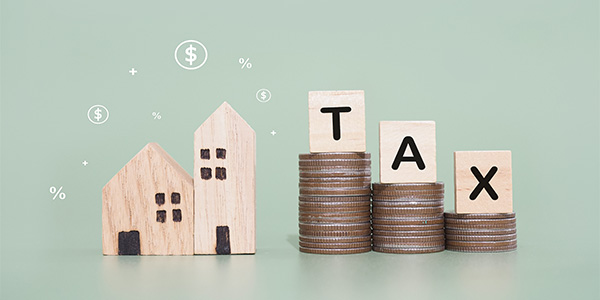Homeowners
Navigating Property Taxes: What Homeowners Need to Know
February 19, 2025
Most homebuyers focus on the sticker price of a home—not realizing that property taxes may make or break their purchases.
High property taxes can exorbitantly jack up monthly mortgage payments, limiting how much buyers can spend on a home. Meanwhile, buyers may be able to afford more expensive homes in the next town over if taxes are lower.
“Property taxes are often among the largest recurring expenses for homeowners,” said Mehdi Khachani, CEO of Miami-based JMK Property Management. The taxes are typically bundled into mortgage payments, along with the principal (what buyers borrowed), interest, insurance costs, and homeowner association fees.
The amount you pay varies dramatically across the country. Some homeowners face sky-high rates, while others barely feel their financial effects each month. This is due to multiple factors, including local government budget needs, property valuations, and your community’s tax policies.
States like New Jersey, Illinois, and Connecticut have the highest property tax rates in the nation, according to the Tax Foundation. Hawaii, Alabama, and Nevada had the lowest.
That means someone in New Jersey could be paying tens of thousands of dollars a year in taxes, while someone in Alabama could be spending less than a thousand.
Why do property taxes vary so much?

Property taxes can vary greatly based on where your home is located, your square footage and size of your property, how much your home is worth, whether you have made improvements to the home to increase its value, among other factors.
“Property taxes pay for a plethora of local services, such as county and city governments, public schools and libraries, roads and bridges, fire, police and emergency services, and so on,” said Lynn Krebs. He is a research economist at the Texas Real Estate Research Center at Texas A&M University in College Station, Texas.
These taxes are often the largest source of revenue for local governments.
“Areas with high public service demands, such as funding for schools or infrastructure, tend to impose higher property taxes,” said Khachani.
Property taxes often fluctuate
Property taxes often rise over time. If the local government needs additional revenue to meet the rising costs of public services or to accommodate community growth, taxes can go up. In some areas, taxpayers may be asked to vote on a tax increase to cover the costs of a large project, such as an addition to a local school.
On the other hand, once a major project or the local government has a surplus, taxes will occasionally fall.
Changes in home values can also play a crucial role. If a home has increased in value, taxes can increase.
"Property tax changes are often driven by property reassessments, which occur when local governments reassess home values to align them with current market trends,” said Khachani.
The good news for homeowners is that depending on where you live, you may be eligible for a break. Many homeowners qualify for exemptions based on their age, disability, or other reasons.
For example, in Texas, retirees may receive a freeze or cap on their property tax liability. Some states also offer discounts on property taxes for veterans.
How to grieve your property taxes

If you get hit with an unexpectedly high property tax bill, you may be able to have those taxes lowered. You may be able to grieve your property tax assessments.
“Homeowners and other owners of taxable property have an opportunity to protest their tax assessments annually or when their property is reappraised by the assessor,” said Krebs.
This typically begins with homeowners filing a form within 30 days of the new tax assessment notice. Once the protest is received and on file, you will generally be informed of your options or given a hearing date.
“In making their case, it is important to present issues that affect their property value,” said Krebs.
This includes knowing if similar homes near yours sold for less than your property is assessed for and providing specifics about your own property. If your kitchen hasn’t been updated or the roof needs replacing, this may lower your property value.
Most states and counties provide taxpayer resources online. You can also seek out the services of a local property tax consultant.
“There are many who will review your assessment without a fixed fee and offer to represent you in protest for a tax-savings contingent fee or for a reasonable fixed fee,” said Krebs.






 Smart Moves Start Here.
Smart Moves Start Here.